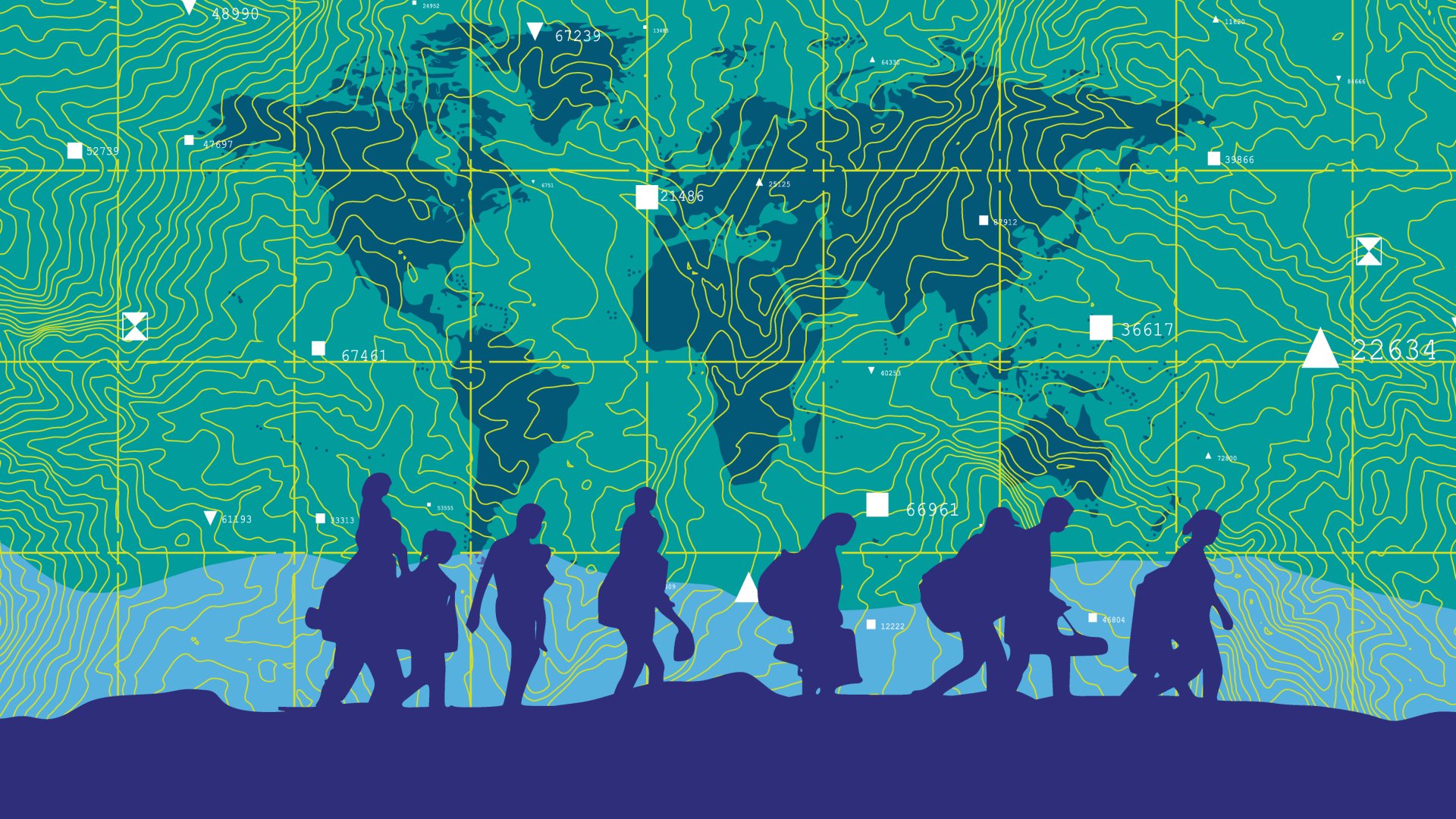Clear rules for the use of digital technologies
From automated visa decisions based on algorithms, models to predict migration patterns, to refugees shopping for groceries via iris scan - digital technologies are already significantly changing the management of migration and human mobility. In a recent essay for the 2022 Mixed Migration Review, Senior Expert Jessica Bither provides insight into an emerging digital nervous system.
The use of digital technologies in migration raises numerous new risks, writes Bither in her essay. For example, there is the potential to use these technologies to discriminate against people or to perpetuate authoritarian governance in the digital space. At the same time, digital technologies could also empower individuals or communities across borders - for example, by providing greater access to migration procedures, or to new opportunities for cross-border work in a digital economy.,. In her essay, she calls for important decisions to be made now regarding the governance of digital technologies. in order to safeguard human dignity, individual freedoms and fundamental human rights..
To do so, actors involved in the governance of migration in a digitized world must begin asking which technologies are used how, and according to which rules - and, first and foremost, who gets to make them.
“The technology in and of itself in most cases cannot tell us whether we should use it, because it depends entirely on the purpose."
The migration and protection spaces are highly political and the implications deeply contextual. Only [with such an understanding] can we begin to distinguish between beneficial and innovative ways of using technology to manage human mobility from those areas where potential harms should ring alarm bells.
For example, so-called "digital identities" could help migrants or refugees by eliminating the need to carry paper records of important documents . However, because these technologies often rely on large biometric databases, there is a risk that they could also be misused for surveillance purposes or to suppress political opponents. As Jessica Bither writes in her essay, it is crucial that policy tools currently being developed to govern digital technologies or AI-based applications in general take into account the delicate implications for the field of migration and refugees.
Read the full essay here.

